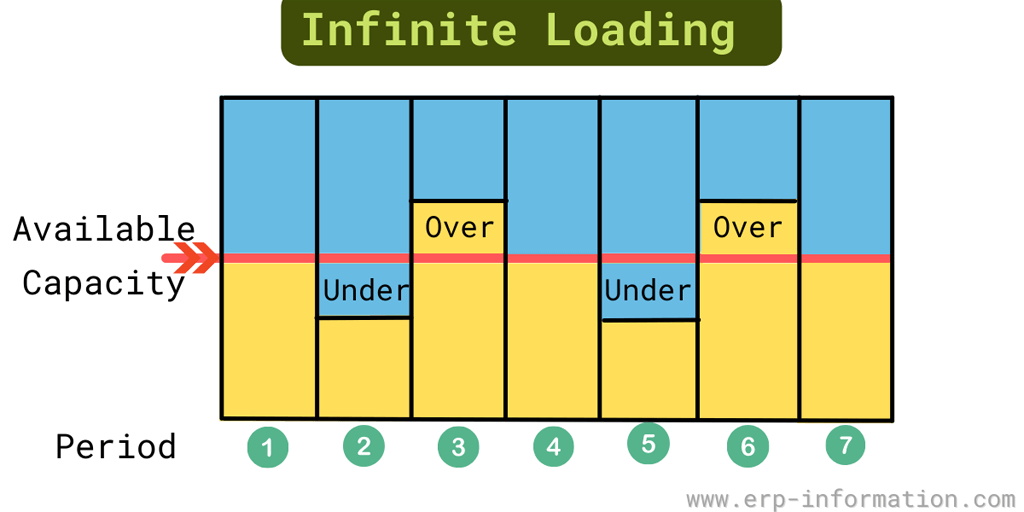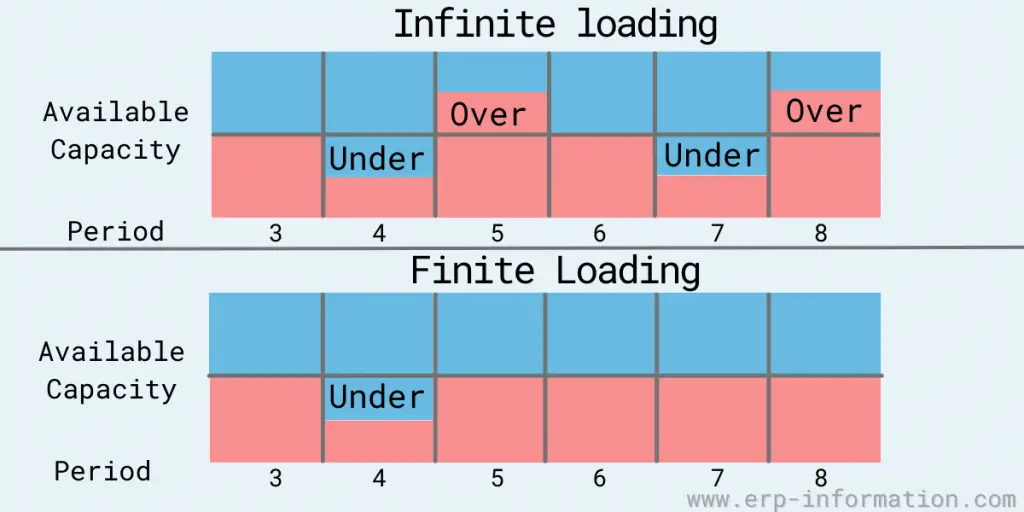Businesses need to plan for expansions in their capacity to meet the growing needs of their customers. However, what is infinite loading, and how can it help business owners better manage their resources?
This blog post will explore infinite loading and how it can be used in capacity planning. By the end of this post, you should better understand infinite loading and how it can help you better manage your resources.
Two types of capacity planning are finite capacity planning and infinite capacity loading. Both systems have their benefits and drawbacks. Depending on the resources available, companies can implement the method.
Before implementing, it is necessary to know about the differences between them. First, let us know about finite loading and infinite capacity planning.
What is infinite capacity planning?
Infinite capacity planning is a method of production planning that shows the load on the resource of a work center is over or under the available capacity in a given period.
It is a method of production planning that shows the maximum amount of product that can be produced over a given period, even if demand for the product increases or decreases.
This type of planning is used when there is uncertainty about future demand for the product. It allows businesses to plan for larger production volumes than what may be required in the short term if demand increases.
Benefits
- It helps to identify uneven workloads.
- It helps to change the work schedule to balance the resource requirements.
- It helps employers achieve a balanced work schedule by identifying overworked and underutilized resources.
For example, if one person has been working 60 hours per week for the past three months, but their colleagues only worked 40 hours each, this might indicate that something needs to change.
This might mean that Division A needs an additional assistant who can help on various projects during part-time shifts so they don’t burn out too quickly.
What is finite loading?
Finite loading is the calculation of capacity available in the work center regardless of the capacity required to perform work.
The term finite loading refers to the calculating capacity available in the work center regardless of the capacity required to perform work.
This calculation may consider the number of employees currently working in the work center and the number of employees that the work center can accommodate, given its current layout and configuration.
By understanding the finite loading for a work center, businesses can identify pinch points and make necessary changes to optimize employee productivity.
Difference between infinite loading and finite capacity loading
Finite capacity loading determines the limited resources available to produce finished items or services to deliver to the customer. So it plans the production process or service activities by considering the available resources. Hence, an overload of capacity will not occur in the finite capacity loading.
Infinite capacity loading does not notice resource limitations and plans the production process or service activities by considering lead times. Hence in infinite capacity loading, an overload of capacity will occur.
The finite capacity planning method generates a more realistic schedule for the production process than the infinite capacity loading.
FAQs
What is the example of a business with infinite loading?
An example of a business with infinite loading is an online retail supplier. The retailer may have finite stock, but its loading is infinite because new stock can be ordered as soon as it is sold.
Therefore, a retailer needs to consider the maximum rate at which orders can be placed and ensure sufficient staff is available to process and despatch those orders.
Examples of businesses with finite loading are software developers, automobile manufacturers, and construction industries.
Conclusion
Infinite loading incapacity planning is a process that maximizes the use of available resources. This helps to ensure that there are no resource bottlenecks during the manufacturing process, which would lead to delays and lower product quality.
Capacity planners can help you maximize your production output through this approach or by following other strategies like just-in-time inventory management.
However, these techniques work best with lean principles for improved efficiency and profitability throughout the supply chain.


